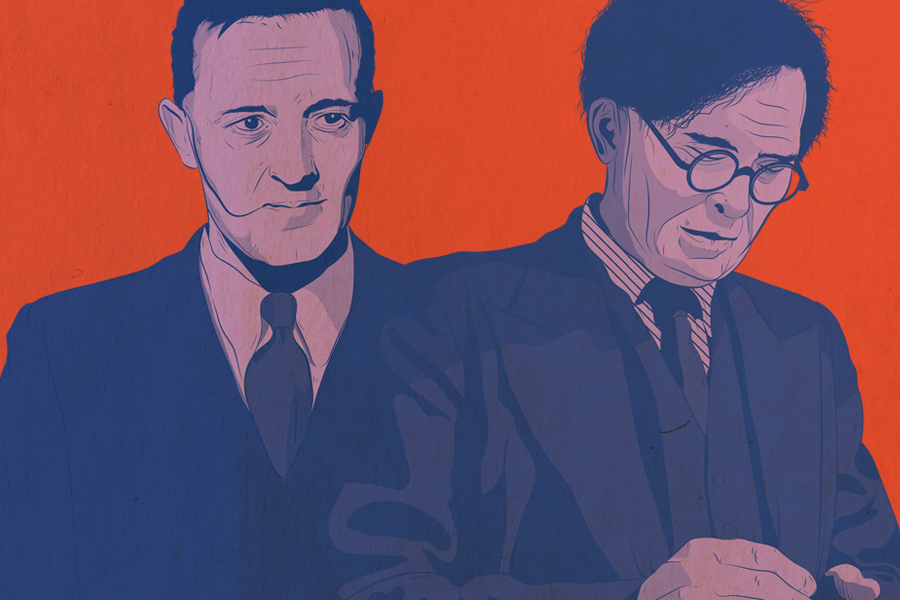
Though initially written for the 1986 stage, Thomas Kilroy’s Double Cross is still relevant today. Although relevance is often claimed of any revived production in this current and fractious half decade, this bold and ambitious show does garner its power from such a living, current context.
Kilroy’s main interest here is power, and its interactions with identity and passion. Ostensibly a convergence of two biographical docudramas, Double Cross focuses on the lives of two Irishmen hell-bent on erasing their pasts in wartime England – Brendan Bracken, Churchill’s Minister of Information, and William Joyce (‘Lord Haw Haw’), Goebbel’s propagandist for the Anglosphere. Yet Jimmy Fay’s direction highlights grander notions than just biography. The last three scenes of the first act contain elements of magical realism – a dialogue between Bracken and an air-raid warden suddenly turns intense. A radio keeps broadcasting, despite its destruction, supernaturally persistent. And in a ruined office space, Ian Toner’s haunting transition, from Bracken to his fascist shadow William Joyce, occurs in real time.
Both protagonists use England as a site of reinvention. Lord Haw Haw does so through a paradoxical desire to both “liberate” and to antagonise the country, through Berlin, while Bracken sees it as the ideal place to escape his past, and ascend to a place of political kudos. There’s more pertinence to contemporary times here as well, with discussion of Haw Haw and his “ministry of misinformation” – fake news, in essence. Though thankfully, Double Cross does not deliver its message with such heavy-handedness. The script speaks for itself.
All three actors are excellent, though the dynamic in the first act lends itself to stronger performances. Bracken creates himself in dialogue, with his compulsive lying and bending of facts, and so bounces off more fixed secondary characters. Each of his scenes feels carefully crafted and autonomous. Sean Kearns and Charlotte McCurry jump between characters with more fluidity here, in tandem with the theatrical space – from audience, to wife, to journalist, to Winston Churchill. Although this leads to some active and engaging theatre, it also tends to some weaker elements in the latter half of the performance, wherein dysfunctional domestics rush to intensity, then pause in the discomfort for a bit too long.
Double Cross is sprawling with ideas. It is undoubtedly an impeccably well-written work, full of lyrical insight (though this erudite register stifles some of the immediate humour, and can verge on the overwritten). Nonetheless, this is far more than a simple biography of two Irish men, but rather theatre seizing a historical moment of great intensity. Double Cross paints an England of vintage radio and bomb raids, culpable in its imperial potential for reformatting individuals into the liar, the fascist, and the “post”-Irishman.






